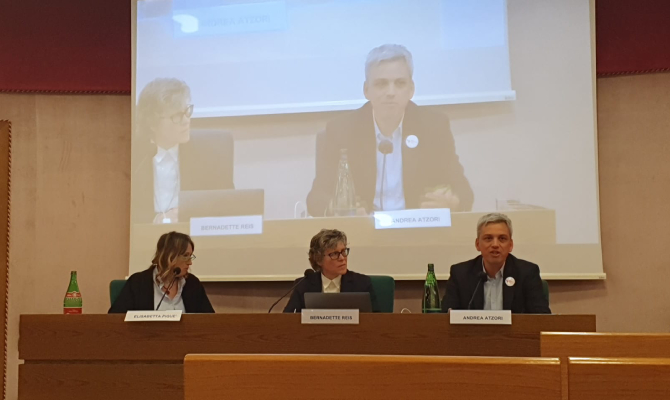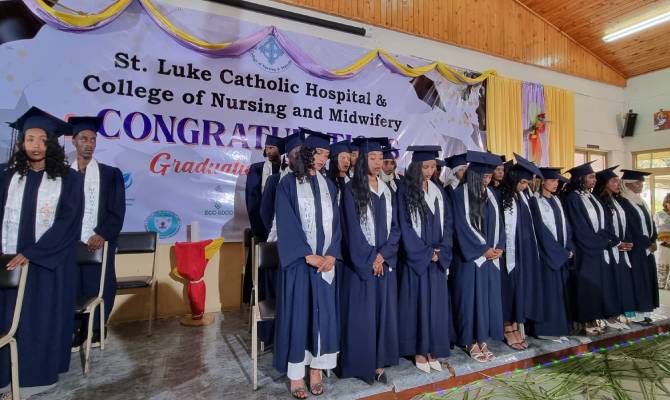The British Embassy to the Holy See hosted the panel discussion ‘Conflict-Related Sexual Violence – Raising Awareness’ on 24 March 2023, with the support of The World Union of Catholic Women’s Organisations (WUCWO).
The panel aimed to raise awareness of sexual violence as a weapon of war in conflicts around the world. It highlighted the need for a stronger global response to this horrific crime, and the crucial role played by religious networks in supporting survivors and tackling the stigma attached to victims and their families.
«During my career, I myself have witnessed first-hand the devastating impact of this heinous act – said Christopher Trott, British Ambassador to the Holy See. From my first posting in Myanmar to my most recent ones in South Sudan and in the Solomon Islands. Just a few places where conflict-related sexual violence destroys lives, and where the trauma has had deep and long-lasting effects on the survivors, but also their families and communities. But conflict-related sexual violence is not only morally abhorrent. It is an abuse of human rights. And, when perpetrated in the context of armed conflict, it is a serious violation of international humanitarian law and a war crime».
Following the opening remarks by the Ambassador, numerous international representatives took the floor to offer different perspectives: from institutional voices and policy-maker to people working on the ground, to media outlets reporter. The speeches pronounced depicted a global issue that must be addressed urgently also by recognizing and validating the role of those deployed on the frontline of service delivery as stated by Andrea Atzori, Head of International Relations At CUAMM.
«Any kind of overcoordination body we can create in these countries will lead to raise the bar and the attention on this issue – said Andrea Atzori, Head of International Relations At CUAMM during the discussion. Local associations and faith based organizations deployed on the frontline of service delivery play a key role. Being the first point of contact with the victims, they can bridge needs and services and for this reason they must not be isolated. On the contrary we need to integrate them into the system».

Motivated by political, military or economic objectives to control territory or resources, Conflict-related Sexual Violence (CRSV) is frequently and deliberately used to target civilians, inflicting long-term trauma and humiliation, fracturing families and the social fabric, triggering displacement and fuelling armed actors’ activities. Such violence is also used as a tactic of violent extremism and terrorism. Women and girls continue to be those primarily affected by CRSV, not least due to patterns of gender discrimination and inequality predating the conflict. CRSV has both short- and long-term effects on survivors, children born of sexual violence, and communities. Physical health impacts range from the consequences of immediate injuries to longer-term disabilities. Mental health impacts for survivors vary, including but not limited to anxiety, depression and post-traumatic stress disorders. And, while dealing with these traumas, survivors often find themselves isolated, without the support they need to get back on their feet. Sadly, the stigma associated with being a survivor of conflict-related sexual violence can include rejection by family and exclusion from community.
While conflict-related sexual violence is prohibited under international law, impunity persists. As Doctors with Africa CUAMM we see this tragedy unfolding in many of the African countries we work in, namely Mozambique, South Sudan and Ethiopia but also in Ukraine. CRSV is an emergency we try to address every day through a effort that is twofold: to provide services to the people harmed and to engage civil societies and stakeholder in effective advocacy.





